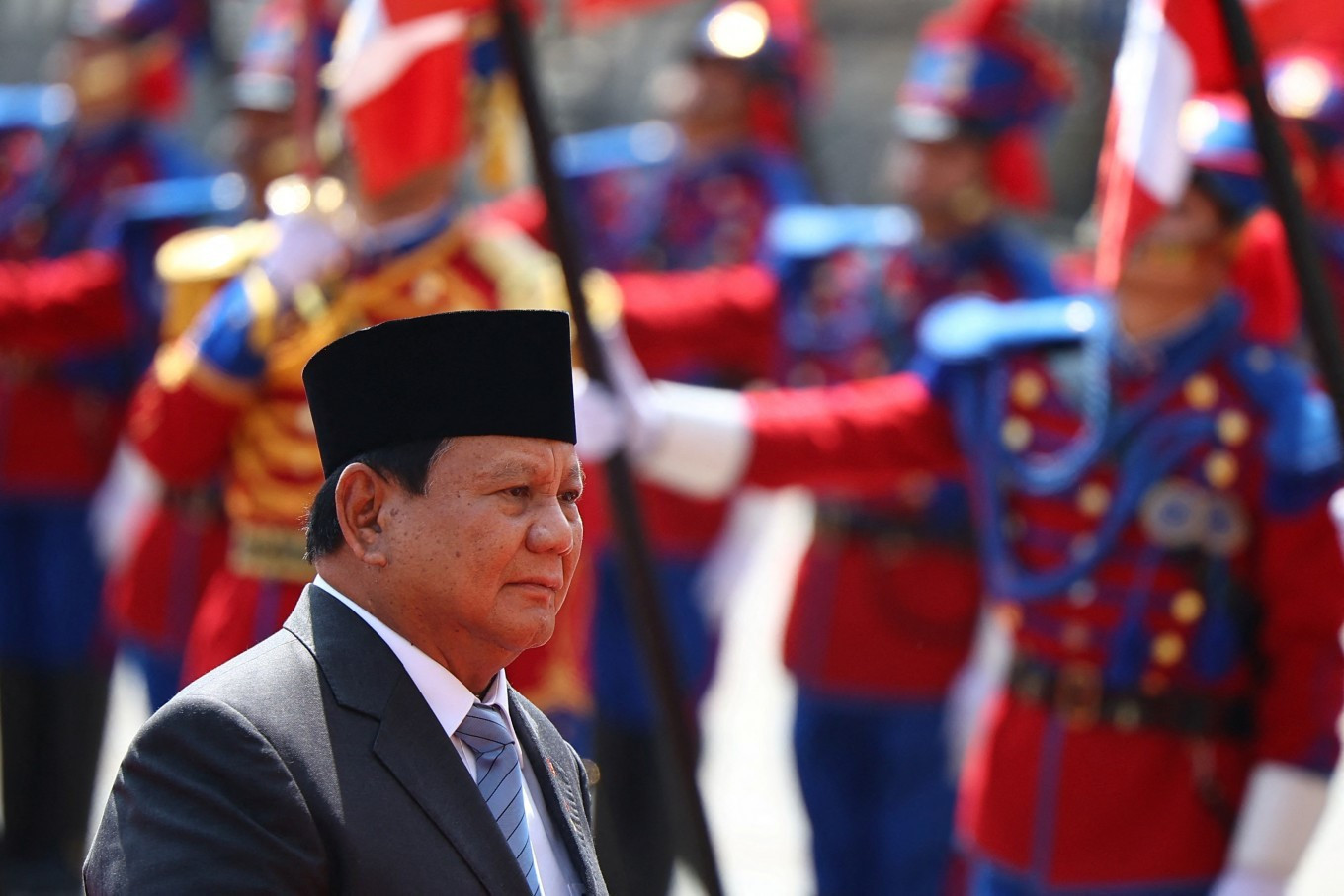News
Trump’s tariffs: Geopolitical reality check for Indonesia
Tenggara Strategics April 14, 2025 President Prabowo Subianto arrives at the government palace to meet with Peru's President Dina Boluarte, on the sidelines of the Asia-Pacific Economic Cooperation (APEC) summit, in Lima on Nov. 14. (Reuters/Agustin Marcarian)
President Prabowo Subianto arrives at the government palace to meet with Peru's President Dina Boluarte, on the sidelines of the Asia-Pacific Economic Cooperation (APEC) summit, in Lima on Nov. 14. (Reuters/Agustin Marcarian)
Following the “liberation day” tariffs imposed by United States President Donald Trump, countries are scouring for strategies and partnerships to mitigate the economic blow dealt by Washington. A developing country like Indonesia stands at a crossroads of having to prioritize the national interest while still being nice to Uncle Sam.
Under Trump’s protectionist policy, Indonesia has been slapped with a 32 percent tariff on all goods exported to the US. President Prabowo Subianto , who has cultivated a populist strongman figure since taking office in October 2024, has long asserted that Indonesia should be able to stand on its own without relying on foreign aid. This time around, however, Prabowo has taken a softer approach to the issue, opting for diplomacy to stave off potential damage through regional cooperation and direct negotiations with Washington.
Prabowo has taken strides in embracing this approach by holding talks on April 6 with Malaysian Prime Minister Anwar Ibrahim on the matter. The two leaders agreed that regional cooperation through ASEAN was needed to combat the heavy US tariffs. Having no significant leverage in the global order, Jakarta appears keen on leading this effort.
After a similar visit to Kuala Lumpur, Coordinating Economic Minister Airlangga Hartarto said ASEAN would not impose retaliatory tariffs on the US. “We [ASEAN] will take the negotiation route. So that’s the path we will align on,” he said. All 10 ASEAN member states have since released a joint statement to solidify their non-confrontational stance on the matter.
Indonesia faces a steeper tariff rate than most of its Southeast Asian neighbors, including Malaysia and Brunei with 24 percent each, the Philippines with 17 percent and Timor-Leste and Singapore with 10 percent each.
By contrast, Vietnam and Cambodia, which have been hit by steeper tariffs of respectively 46 percent and 49 percent, have made swift efforts to maintain favorable trade relations with the US. While Vietnam has lowered its import tariffs on US goods to zero, Cambodia has lowered its rate to 5 percent. Exports to the US account for approximately 30 percent of Vietnam’s gross domestic product (GDP) and 25 percent of Cambodia’s GDP.
Outside the region, global economic power China has taken a bolder approach and hit Washington with a retaliatory tariff of 125 percent as of April 14. This more than tripled its initial 34 percent levy, after the US kept increasing its tariff amid Beijing’s confrontational response. China has vowed to “fight to the end” against what it has described as economic bullying by the US.
For Jakarta, engaging in direct talks with the Trump administration faces a major hurdle: Since August 2023, Indonesia has not had an ambassador in Washington, a position that was last filled by Rosan Roeslani, currently the investment minister. Although officials have assured that the lack of an official envoy in the US will not pose a problem in upcoming negotiations, critics have pointed out that the prolonged vacancy has hampered Indonesia’s lobbying capacity.
To offset the existing gap in diplomatic representation, Prabowo plans to send a high-profile delegation comprising Airlangga, Finance Minister Sri Mulyani Indrawati, and Foreign Minister Sugiono to spearhead the talks with Washington. Although they are renowned domestically, only time will tell whether these senior officials will have any success in procuring friendlier terms for the country.
While Prabowo continues to spout populist rhetoric at home, his deference to US demands reveals the harsh geopolitical limits of his strongman persona.
What we've heard
The Indonesian government responded swiftly to the reciprocal tariff policy issued by the United States government against its trading partners. Last Monday, Airlangga invited several associations and foreign chambers of commerce to discuss Indonesia’s response. “Airlangga wants to hear input from business players,” said a source who attended the event.

